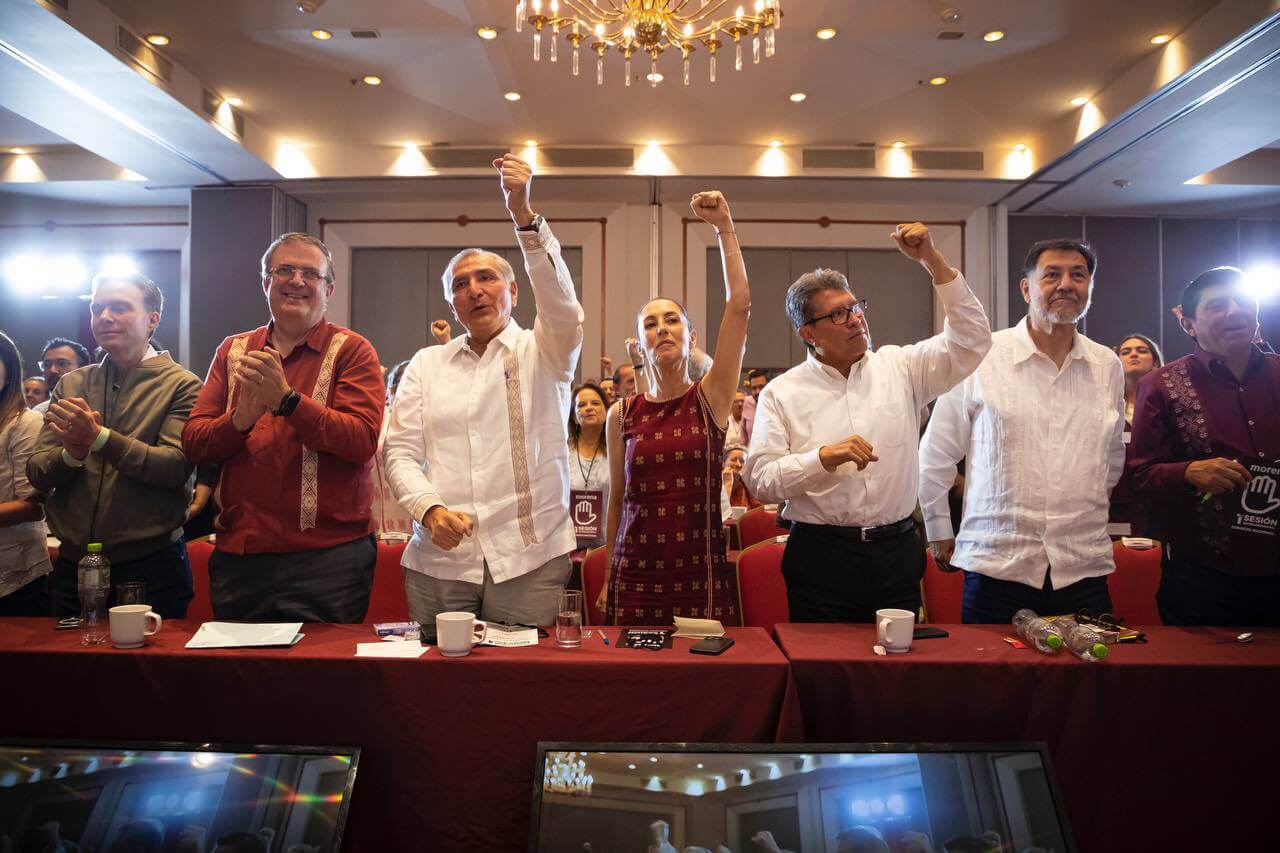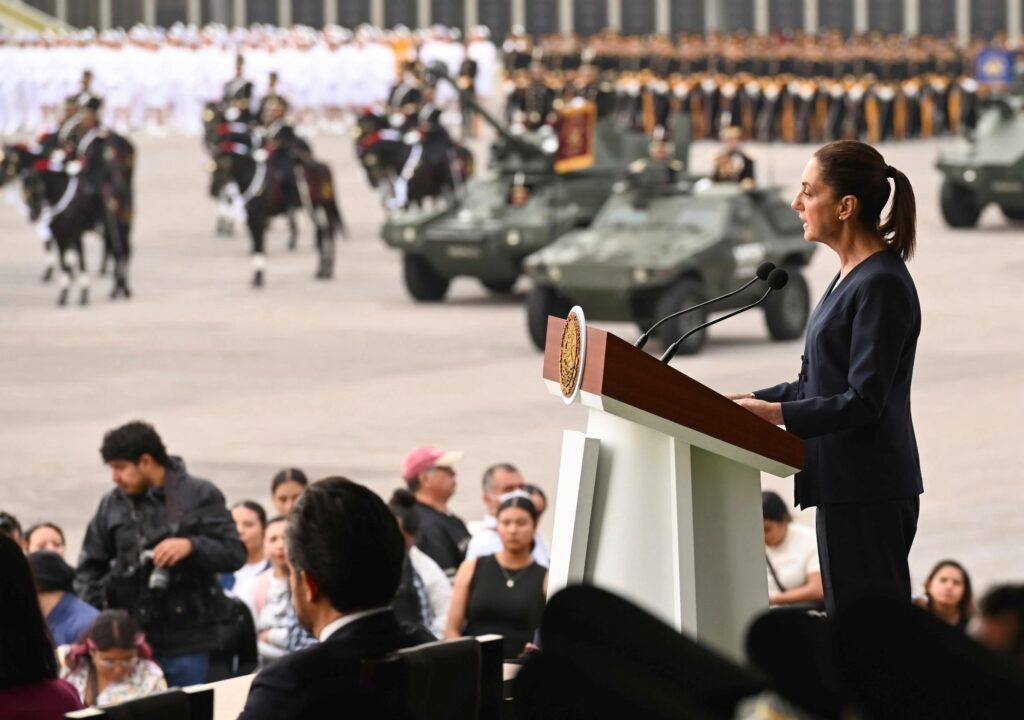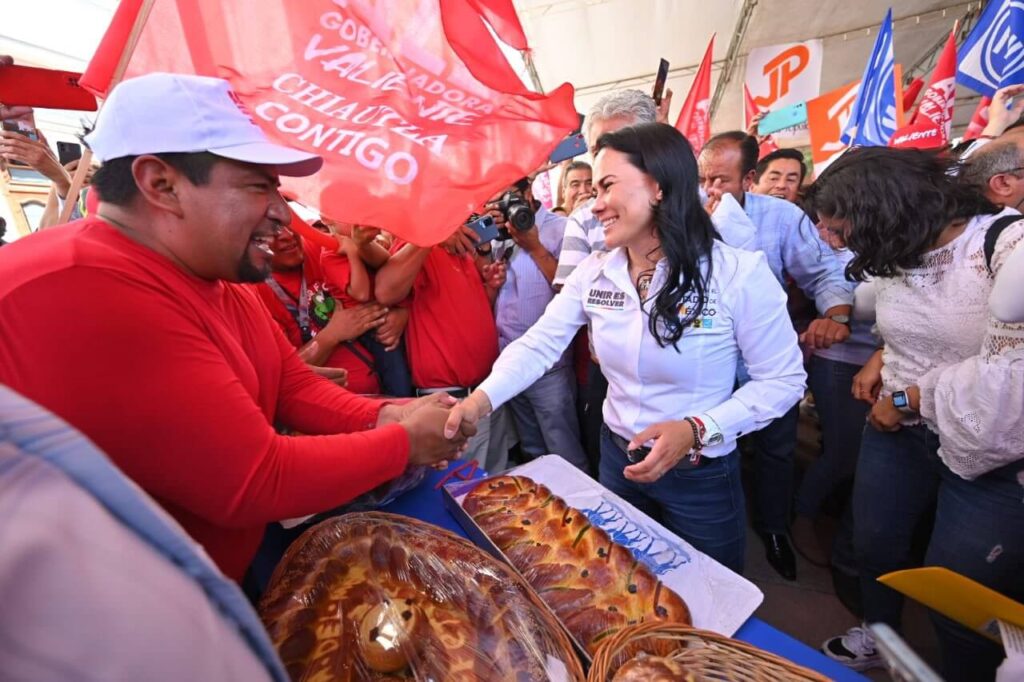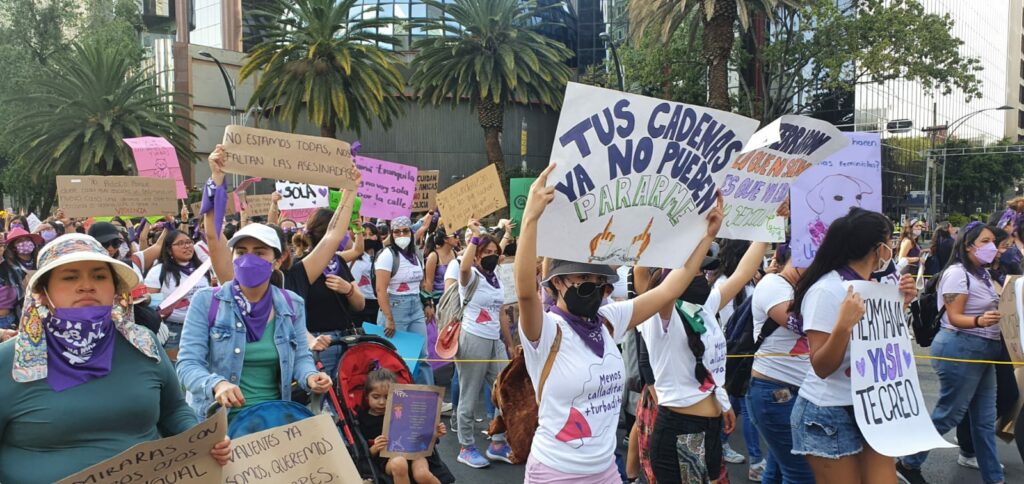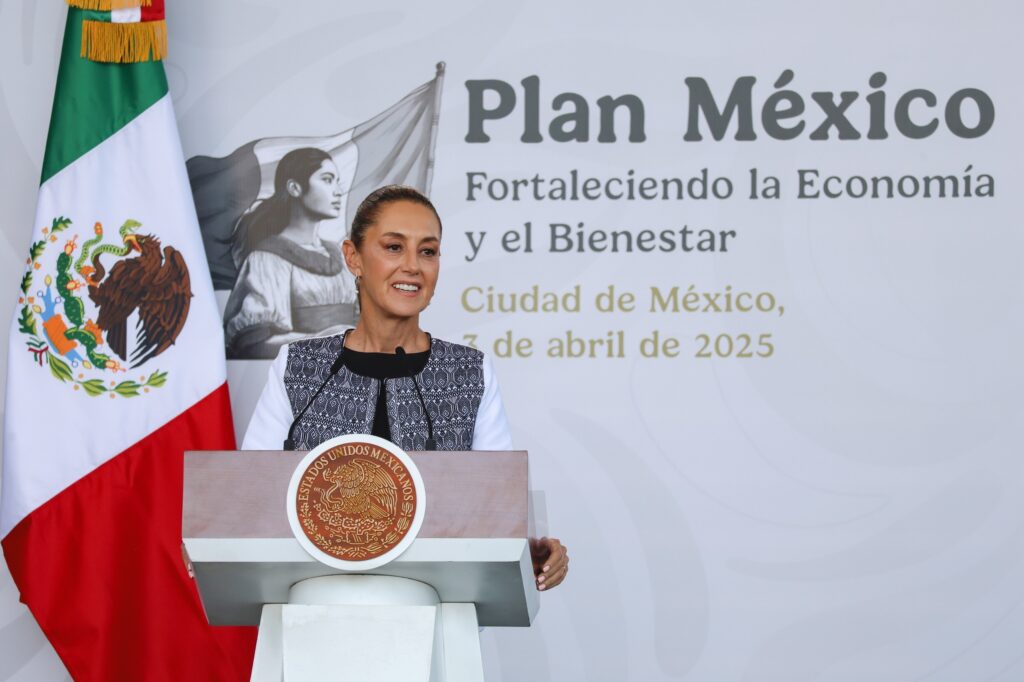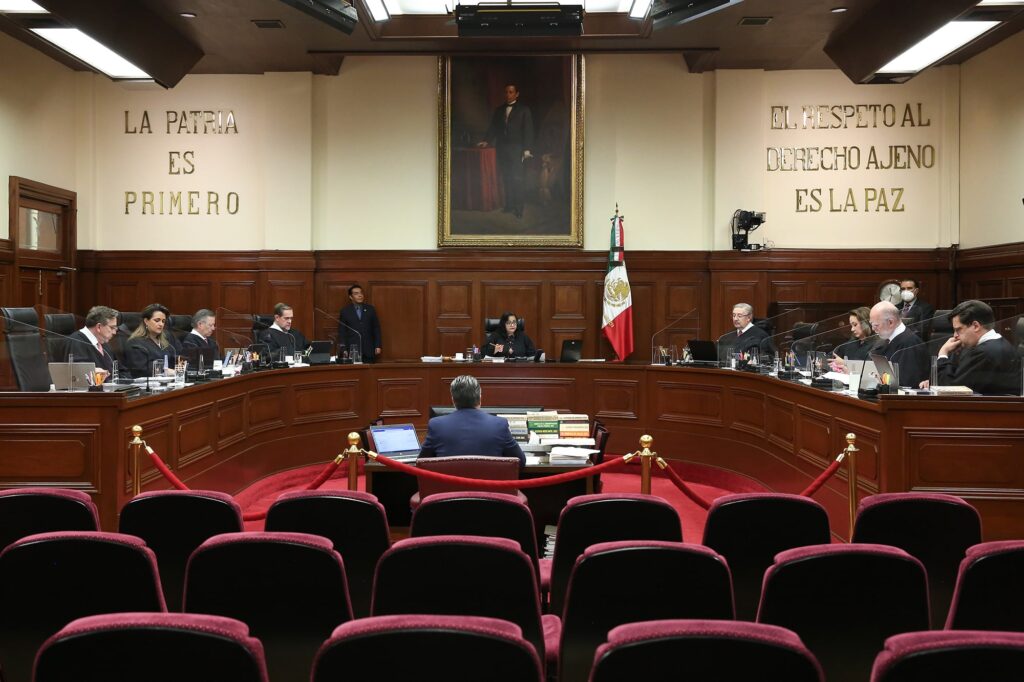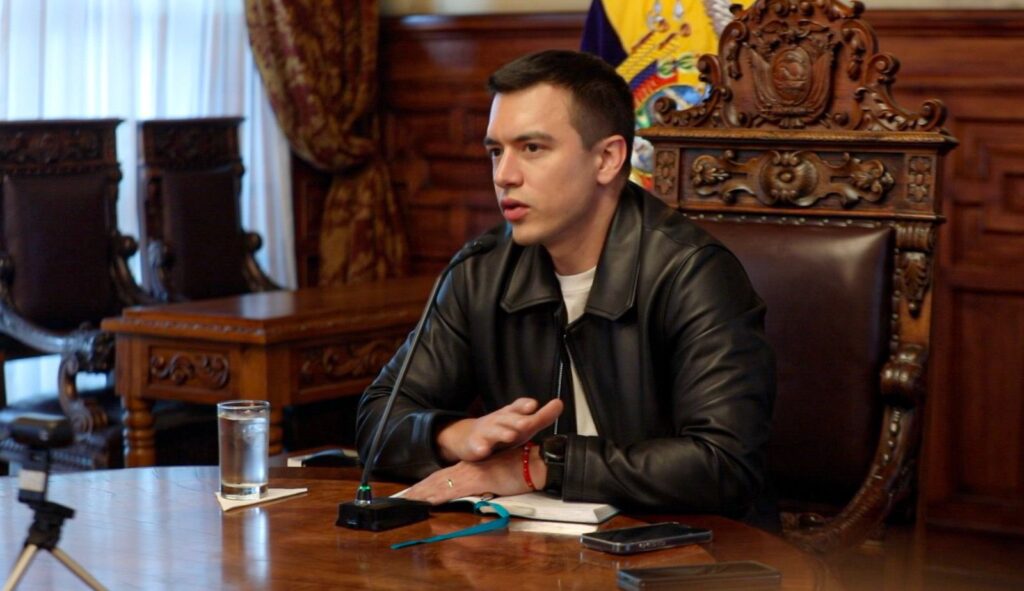Mexico City, Mexico — Last week, five politicians from Mexico’s ruling National Regeneration Movement (MORENA) officially registered with their party as candidates, effectively launching the country’s race for a new president in 2024.
As its most powerful political party, MORENA has held a firm grasp on Mexico’s politics in recent years, and it is likely that the country’s next president could emerge from the results of the party primary on July 2024. Meanwhile, other political parties — including the once-dominant Institutional Revolutionary Party (PRI) that has fallen to the wayside after numerous corruption scandals — may resort to forming alliances to launch candidates that can challenge MORENA.
Although the official electoral process won’t begin until September 2023, MORENA’s pre-candidates have already resigned from their current positions and have begun campaigning.
Leading the front-runners from MORENA is the former Mayor of Mexico City Claudia Sheinbaum, a favorite in most polls and some have argued the closest candidate to Mexican President Andrés Manuel López Obrador’s principles; Marcelo Ebrard, a close ally to the president for over 20 years and the former Foreign Minister during AMLO’s administration; Adán Augusto López Hernández, a close friend of the president and once governor of Tabasco, AMLO’s home state; Gerardo Fernández Noroña, not from MORENA but from the allied Labour Party (PT), he may be the most popular candidate outside the big three selling himself as a true Marxist candidate; and Ricardo Monreal Ávila, the top MORENA senator who has tended to poll pretty low amongst potential voters.
MORENA’s dominance
Following regional elections on June 4, MORENA has securely placed itself as the leading political force in Mexico.
Members of the party currently govern 22 of Mexico’s 32 states (69%), including the state of Mexico which encompasses Mexico City, which until this year’s election has been ruled by PRI politicians since the early 1950s.
The party’s growing strength mirrors its ongoing popularity. Even without a defined candidate, many polls place MORENA as the top choice for voters in the upcoming presidential elections.
In May, market research and polling company Enkoll reported that over 60% of Mexicans polled would vote for a MORENA candidate, and pollsters Buendía & Márquez reported 41% favorability ratings for MORENA, with opposition parties the National Action Party (PAN) and PRI obtaining just 14% and 12% respectively.
And MORENA has been able to muscle into its dominant stance in a relatively short time frame.
Created in 2011 by now President López Obrador ahead of the 2012 presidential elections, MORENA began as a political and social movement that would evolve into the country’s youngest political party — one that would overwhelm Mexico’s long-standing political elite.
López Obrador lost the 2012 presidential race, but would return six years later to handily defeat the conservative Ricardo Anaya from the PAN party, becoming one of the most voted-for presidents in the country’s history.
Since then, MORENA has taken over most of the country’s governorships and the majority of Mexico’s Congress, pushing aside deep-rooted parties that have lost credibility over the years after being entrenched in corruption scandals and accusations of ties with narcotraffickers.
Mexico’s faltering opposition
The political party that has experienced unquestionably the hardest fall from power is the once-giant PRI party, which dominated Mexican politics throughout the 20th century. But since the late 1990s, graft and other scandals have alienated the party from lower and middle class voters that it once captivated.
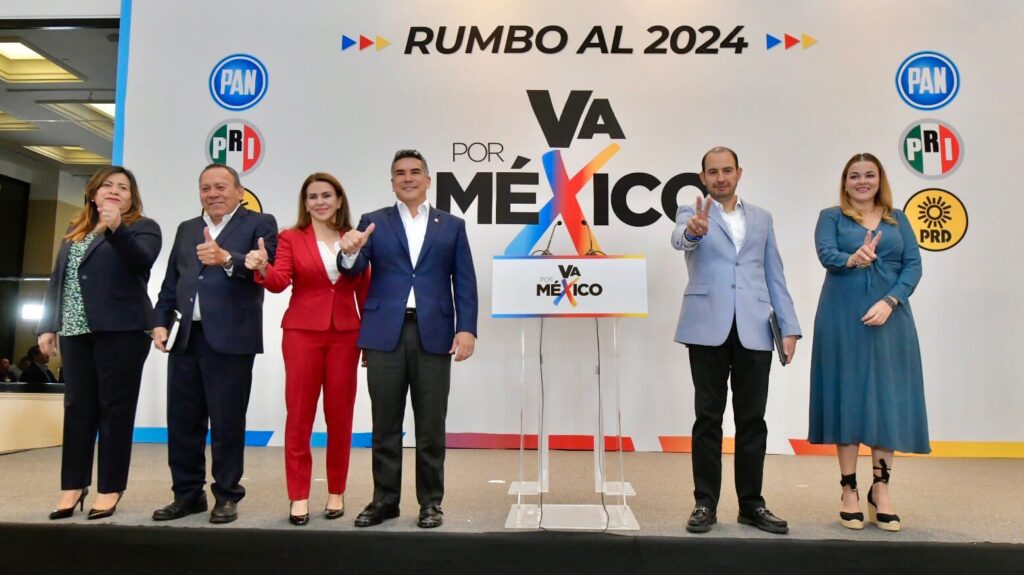
Once ruling a majority of Mexico’s state governorships, the party labeled by Peruvian writer Mario Vargas Llosa as “the perfect dictatorship” — thanks to its ability to enforce law and power as a full-fledged dictatorship under the guise of multiparty democracy — now only holds two state governorships after June 4.
Like the PRI, which was formed in 1929 with the ideals of the 1910 Mexican Revolution, MORENA too was born out of a social movement.
“I would especially say that [MORENA] is occupying PRI’s old ideology, its project of social responsibility, and its expansionism of the responsibility of the State as the one in charge of social satisfaction that the PRI maintained for so many years. That was its ideology during the whole last century. Morena today is retrieving it,” Rogelio Hernández Rodríguez, a researcher and professor at El Colegio de México, told Aztec Reports.
Another traditional political force in Mexico in the past decades has been the conservative PAN party, which ruled Mexico during the terms of Vicente Fox (2000-2006) and Felipe Calderón (2006-2012).
Holding five states, the PAN party is the second-largest political force in the country. It’s one of the country’s most conservative parties, sticking to strict Catholic and free market ideals. The part is more popular at the moment than the PRI, proving to be one of MORENA’s biggest rivals.
However, the PAN has failed to wrest control from MORENA singlehandedly, since its influence is limited to a small demographic of upperclass and ultra-conservative voters.
In 2020, looking to counter MORENA’s popularity and influence, the PRI and PAN parties, alongside the Democratic Revolution Party (PRD), allied under the political coalition “Va por México.” The coalition agrees to promote one candidate from one party within the group that represents the three allied parties.
It’s had some success, for instance in 2021, PAN’s Maru Campos won the governorship in the state of Chihuahua, backed by “Va por México.” However, the coalition’s most recent candidate for governor of the state of Mexico, PRI’s Alejandra del Moral Vela, fell flat after corruption allegations surfaced days before the election.
Read more: Mexican gubernatorial candidate caught in corruption scandal days before historic elections
While some PAN members have called to end the alliance in an effort to distance their party from the PRI’s increasing unpopularity, the PAN’s leaders have assured that the coalition will continue.
“Va por México” won’t announce how they will choose their candidate until June 26.


